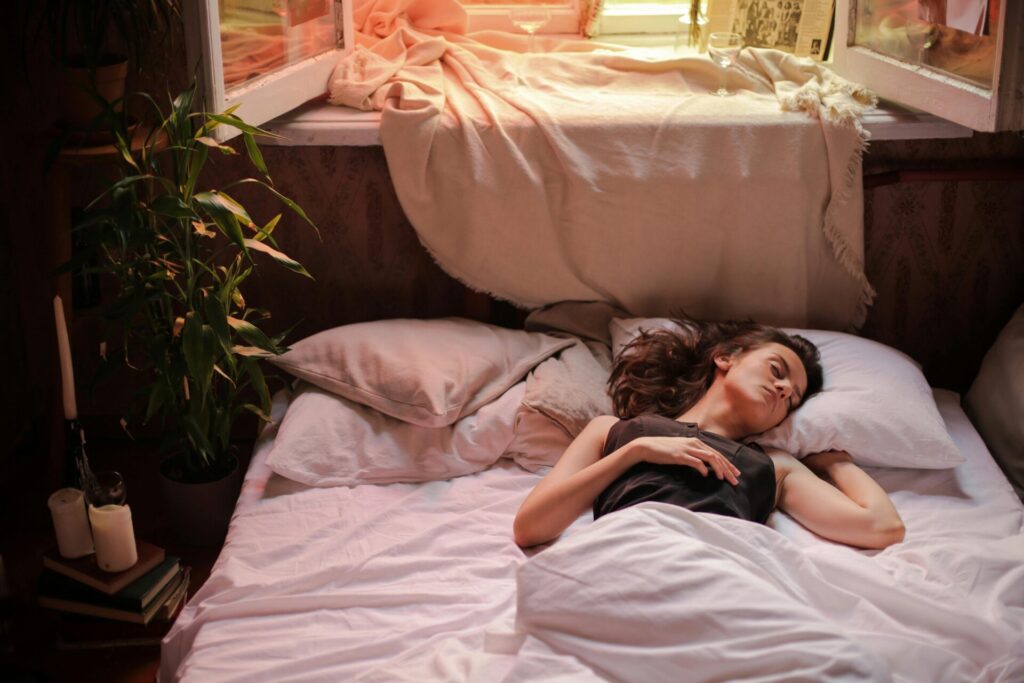In the hustle and bustle of modern life, a good night’s sleep often seems like an elusive luxury. The importance of quality sleep cannot be overstated, as it directly impacts our physical health, mental well-being, and overall productivity. Enter the world of revitalizing rest, where crafting a bedtime ritual becomes an art, ensuring a serene sanctuary for rejuvenating slumber. Let’s delve deep into the intricacies of creating the perfect bedtime routine, drawing insights from experts and visionaries who have explored the profound impact of sleep on our lives.
Unlocking the Secrets to Restful Nights
According to Dr. Brandon Peters, what you do in the time leading up to when you want to go to sleep is just as important as physically getting into bed, if not more. Creating and sticking to a consistent bedtime routine can help you transition to sleep more easily and relieve insomnia. Begin by creating a sleep-friendly environment: dim the lights, adjust the room temperature, and invest in a comfortable mattress and pillows. Preparing your mind and body for rest is equally vital. Engage in calming activities before bedtime, such as reading a book or practicing mindfulness. By adopting these simple yet effective measures, you pave the way for a restful night’s sleep.
Understanding the intricacies of circadian rhythms is key to perfecting your bedtime ritual. Circadian rhythms, as explained by sleep scientist Dr. Satchin Panda, dictate our body’s natural sleep-wake cycle. Aligning your bedtime routine with these rhythms enhances the quality of your sleep. According to Panda, exposure to natural light during the day and minimizing artificial light at night helps regulate circadian rhythms, signaling to your body when it’s time to wind down. Embracing these rhythmic rituals establishes a harmonious balance between your internal clock and the external world.
Sloth London states that mindfulness practices before bed also do wonders for your sleep and daily function. Activities like meditation, deep breathing, and gratitude journaling empty your mind of worries and fill it with positive thoughts. They induce a calming flow state highly conducive to rest and relaxation. Mindful meditation allows you to detach from the day’s chaos, creating a mental space conducive to rest. Simple deep-breathing exercises or guided meditation can be powerful tools in your arsenal, inviting tranquility into your bedtime ritual and paving the way for rejuvenating rest.
There is a detrimental impact of excessive screen time on sleep quality. According to Calm, screen time before bed increases blue light exposure. Screens emit blue light, known to suppress melatonin production— a hormone crucial for regulating sleep. To revitalize your rest, it’s imperative to create a technology-free zone at least an hour before bedtime. Disconnecting from screens allows your mind to unwind and prepares your body for the restorative sleep it craves.
Sensory Serenity: Aromatherapy and Sleep
According to aromatherapy expert and author Valerie Ann Worwood, engaging your sense of smell can significantly enhance your bedtime ritual. Aromatherapy, with its soothing scents like lavender and chamomile, has been linked to improved sleep quality. Incorporating essential oils or a calming room spray into your nighttime routine can signal to your brain that it’s time to relax. By embracing the sensory serenity of aromatherapy, you create an olfactory haven that invites peaceful slumber.
Prominent psychologist Dr. Marsha Linehan, known for her work on Dialectical Behavior Therapy (DBT) principles, highlights the importance of emotional resilience in achieving restful sleep. According to DBT Self-Help, Dialectical Behavior Therapy (DBT) can help you get a better night’s sleep by addressing the root cause of your sleep-related issues. DBT can help you establish a sleep routine and may be able to help you get back to bed after a nightmare. Engage in activities that promote emotional well-being, such as journaling or practicing gratitude. By addressing and navigating emotions before bedtime, you create a foundation for tranquil sleep.
Sleep hygiene, as advocated by sleep expert Dr. Michael Breus, involves paying meticulous attention to the details that impact your sleep quality. This includes maintaining a consistent sleep schedule, avoiding caffeine and heavy meals close to bedtime, and creating a bedtime routine that signals to your body that it’s time to wind down. By incorporating these hygiene practices into your nightly ritual, you optimize your sleep environment and set the stage for uninterrupted rest.
The art of revitalizing rest extends beyond the night itself. Taking a few moments in the morning to reflect on your sleep quality can be transformative. Evaluate how your bedtime ritual influenced your sleep and adjust accordingly. By being mindful of the morning after, you fine-tune your routine, ensuring that each night becomes a step toward mastering the art of perfecting your bedtime ritual for sound sleep.
About the Author
Dr. Rahmany began her academic journey at San Francisco State University, earning a bachelor’s degree in psychology. She furthered her studies at the California School of Professional Psychology, obtaining a master’s and a doctorate in clinical forensic psychology. She started her career at the California Department of Corrections and then joined Cyti Psychological and became the National Clinical Director. Her diverse experiences have reinforced her commitment to psychology and its impact on communities.








